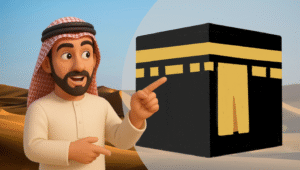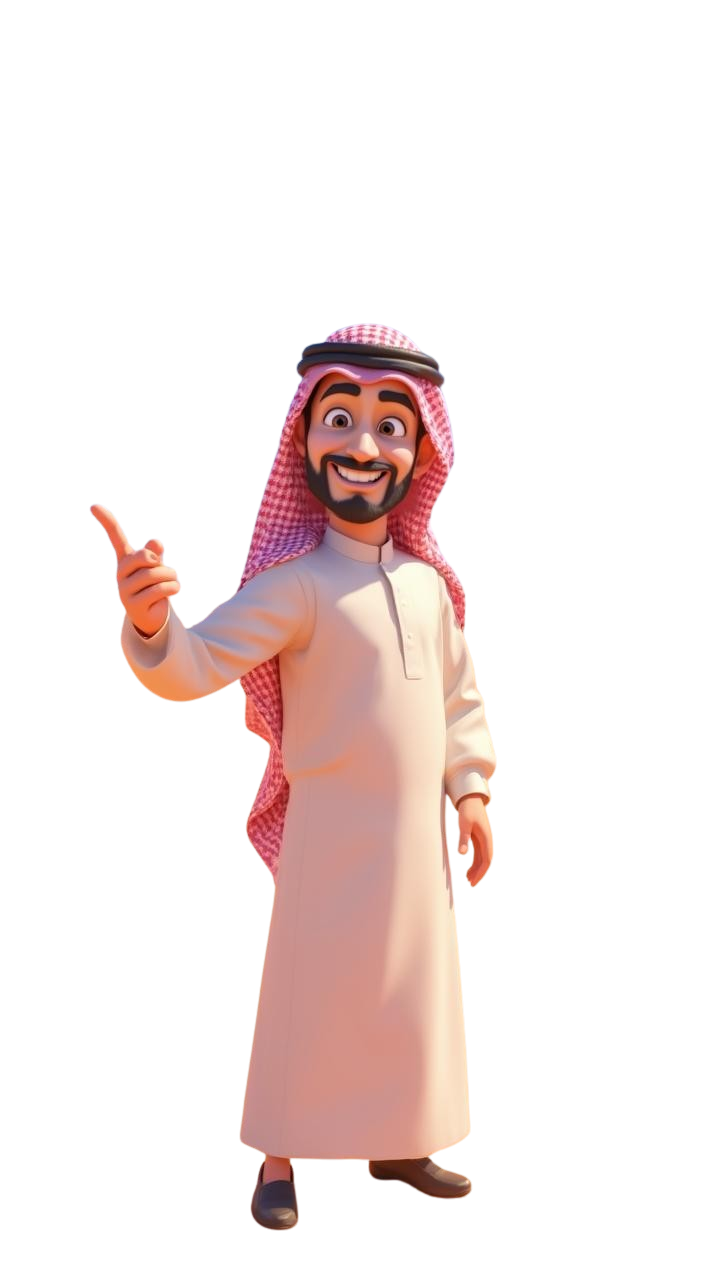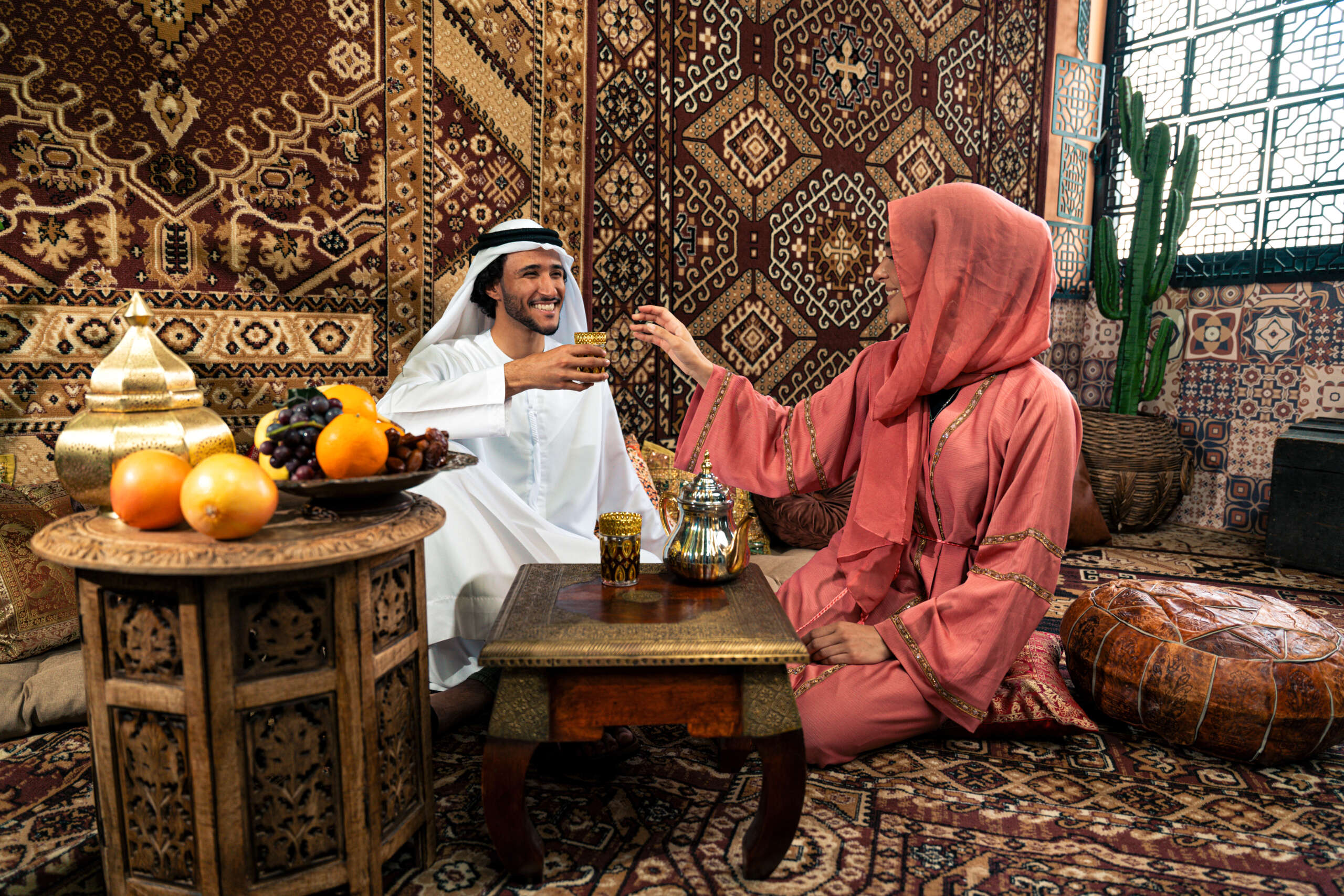
The Middle East is often seen as a place where the old and the new collide but these days, it’s more of a dance than a collision. Walk through the spice-scented alleys of a souq in Muscat, then look up and you’ll spot sleek towers made of glass and steel.
Visit a family in Riyadh, and you might see a grandmother hand-rolling traditional flatbread while her grandson codes an app in the next room.
From Saudi’s AI-driven city planning to Dubai’s growing music festivals, the region is rewriting what it means to live between tradition and modernity. Cultural expectations are shifting, wardrobes are evolving, and the pace of life is faster than ever—but there’s still a strong pulse of heritage running through it all.
So what does this cultural evolution really look like on the ground? How are people blending old values with new lifestyles? And where is it all heading?
Let’s take a closer look.
1. The Deep Roots of Tradition
Before we get into the modern stuff, let’s talk about the traditions that define Middle Eastern culture. Heritage isn’t just a thing of the past—it’s a living, breathing part of everyday life.
Family First
In the Middle East, family is everything. It’s common to see multiple generations living under one roof, sharing meals, stories, and responsibilities.
Hospitality Like No Other
Ever had Arabic coffee served with dates? That’s just a glimpse of the legendary Middle Eastern hospitality, where guests are treated like royalty.
Traditional Clothing
While Western styles are making waves, many still proudly wear the abaya, kandura, and other traditional attire, especially during cultural and religious events.
Religious Influence
Islam plays a significant role in shaping customs, values, and even daily routines, from prayer times to holiday celebrations.
Despite modernization, these traditions remain a cornerstone of identity in the region.
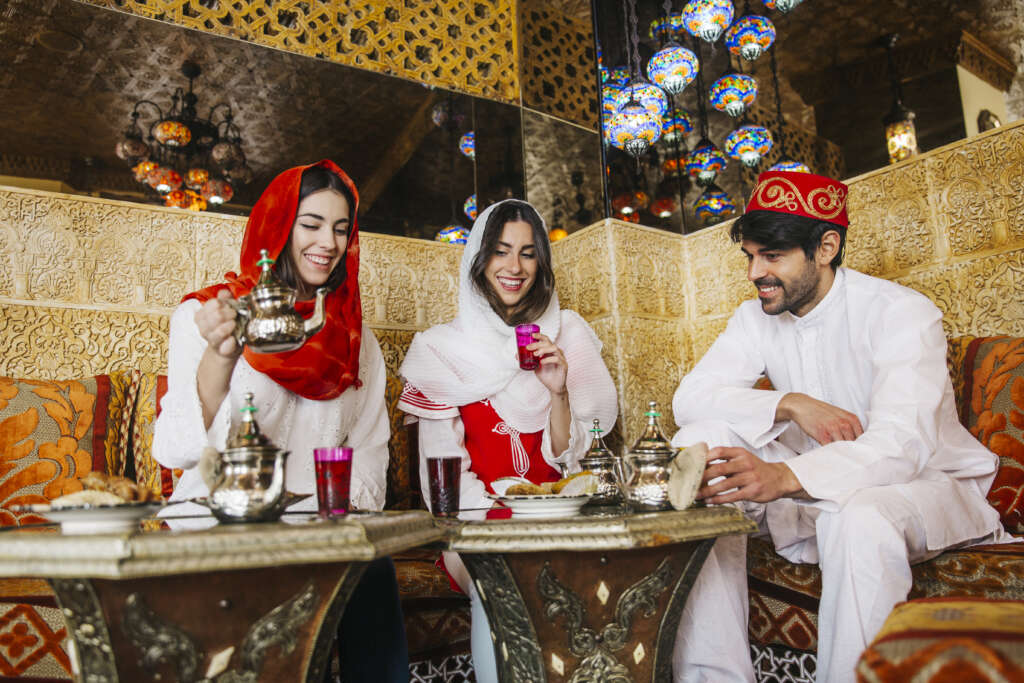
2. The Rise of Modernity
The Middle East isn’t just about camels and deserts anymore (though those are still pretty cool). Today, the region boasts some of the most futuristic cities and groundbreaking developments in the world.
Skyscrapers & Smart Cities
Cities like Dubai, Riyadh, and Doha have transformed into global hubs with jaw-dropping architecture and cutting-edge technology.
Western Influence
From Hollywood films to international fashion brands, the region is embracing global trends while adding its own unique twist.
Women’s Empowerment
Women are making massive strides in education, business, and leadership roles. Just look at Saudi Arabia, where more women than ever are entering the workforce.
A Growing Youth Culture
The younger generation is shaping a fresh, modern identity—one that respects tradition but isn’t afraid to push boundaries.
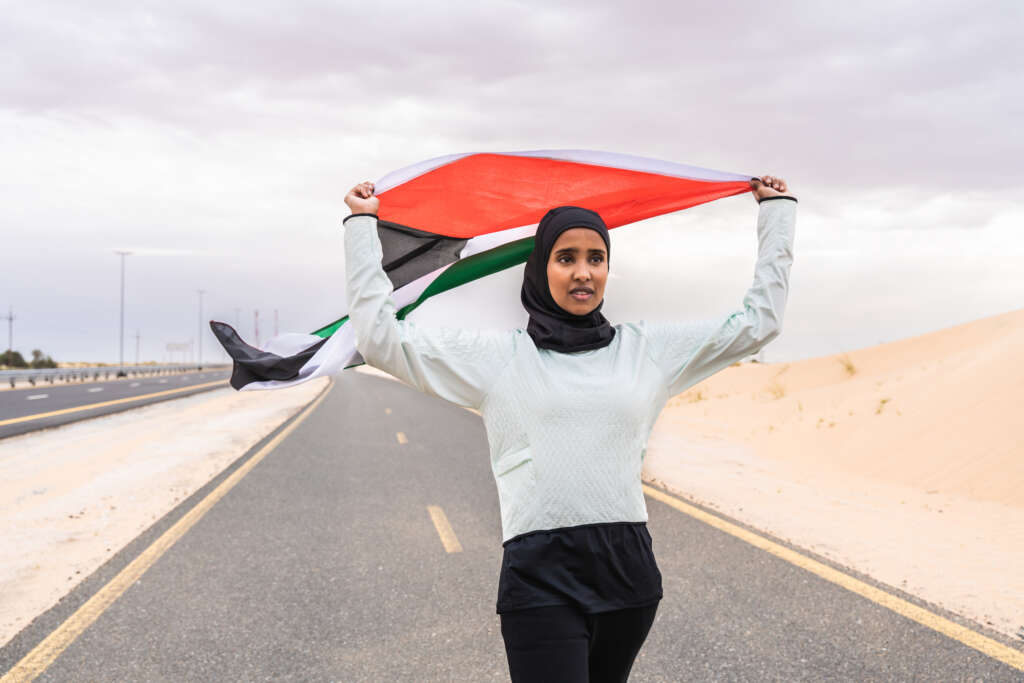
3. Cultural Fusion: A Delicate Balance
So, how do tradition and modernity coexist? The answer lies in cultural fusion—a balance so seamlessly woven into daily life that it feels effortless. But when you take a closer look, the signs are unmistakable:
Architecture That Tells a Story
The Burj Khalifa might dominate the skyline, but you’ll still find traditional bazaars and old-world courtyards coexisting beautifully.
Fashion Forward, Yet Rooted in Heritage
Traditional embroidery meets high fashion, and modest wear influencers are redefining style on global runways such as Elie Saab & Zuhair Murad.
Food Evolution
Shawarma meets sushi, and Arabic coffee gets a modern café twist. Fusion food is thriving while traditional dishes remain at the heart of Middle Eastern cuisine.
The region is proving that old and new don’t have to compete—they can complement each other.
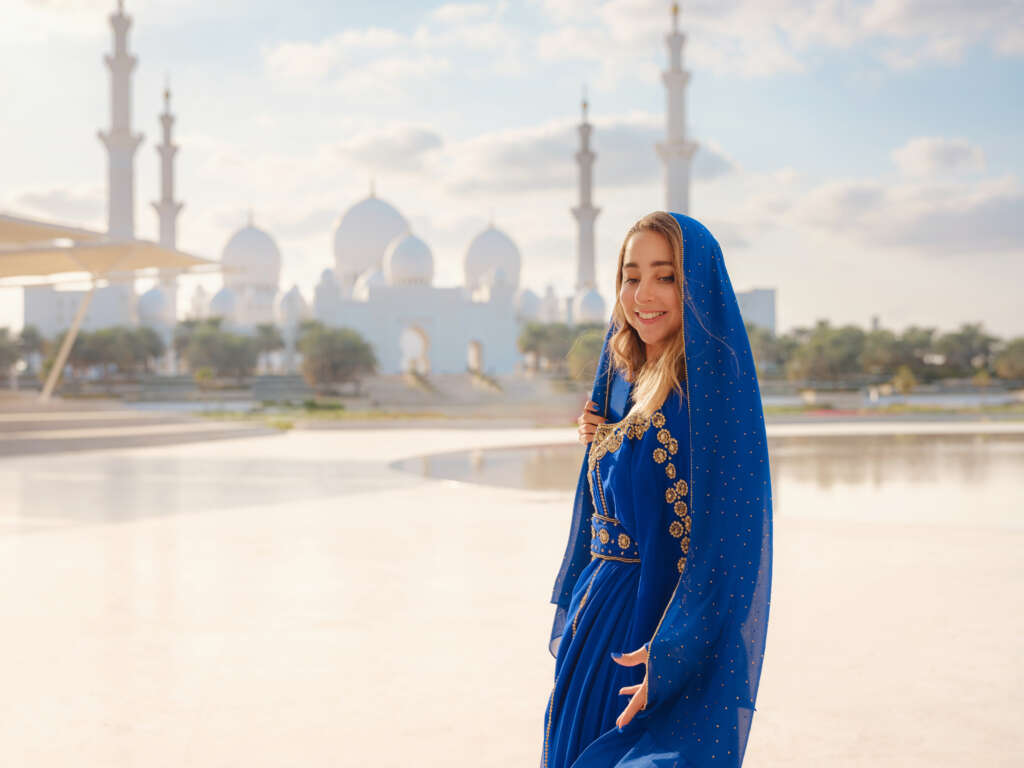
4. Technology and Social Media’s Role in Cultural Shift
If tradition and modernity were in a relationship, social media would be the mediator, keeping things balanced. It bridges the gap between generations, allowing traditions to be preserved while embracing new trends. Here’s how tech is shaping Middle Eastern culture:
Influencers & Entrepreneurs
The rise of social media stars and digital creators is redefining success, with many using platforms to showcase Middle Eastern culture to the world.
Preserving Heritage Digitally
From virtual museum tours to Instagram pages dedicated to traditional crafts, technology is playing a role in keeping cultural heritage alive.
A Platform for Dialogue
Social media has become a space for discussions on culture, identity, and change, bridging generational and ideological gaps.
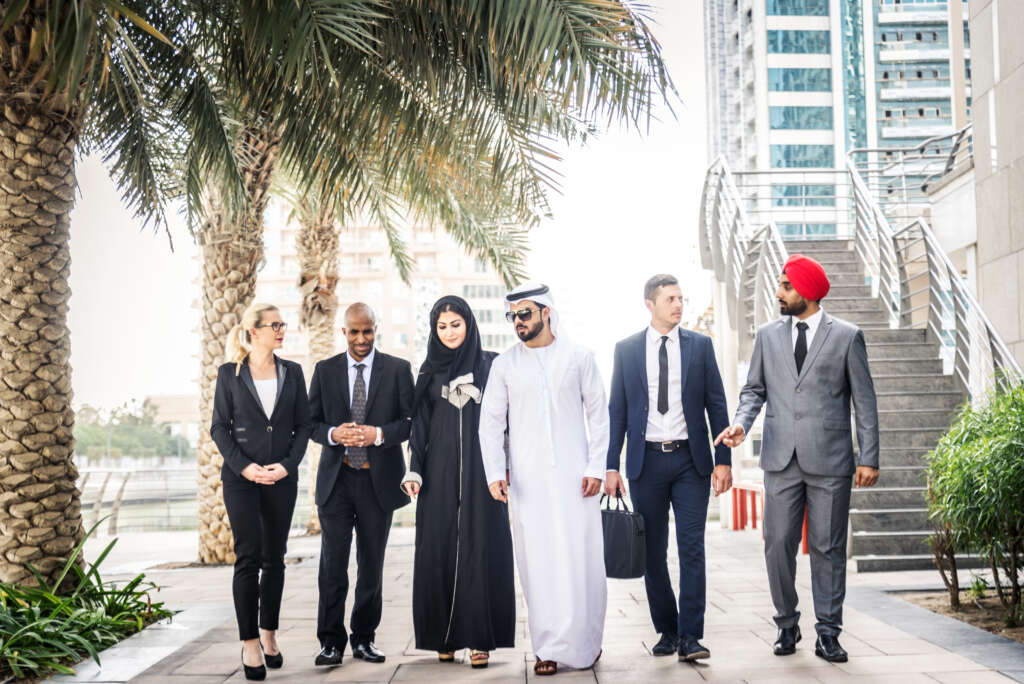
5. Challenges and Controversies
Of course, change doesn’t come without resistance. Not everyone is thrilled about modernization, and some debates are hotter than the Arabian sun.
Traditional vs. Modern Mindsets
Some conservative groups fear that modernity is eroding cultural values, while younger generations see it as progress.
Western Influence: A Blessing or a Threat?
Is the adoption of Western trends enhancing Middle Eastern culture, or is it diluting its authenticity? The debate continues.
Generational Divide
Parents and grandparents might hold on to stricter traditions, while millennials and Gen Z are making their own cultural identities.
Striking a balance between preserving tradition and embracing progress is an ongoing challenge, but one the Middle East is actively navigating.
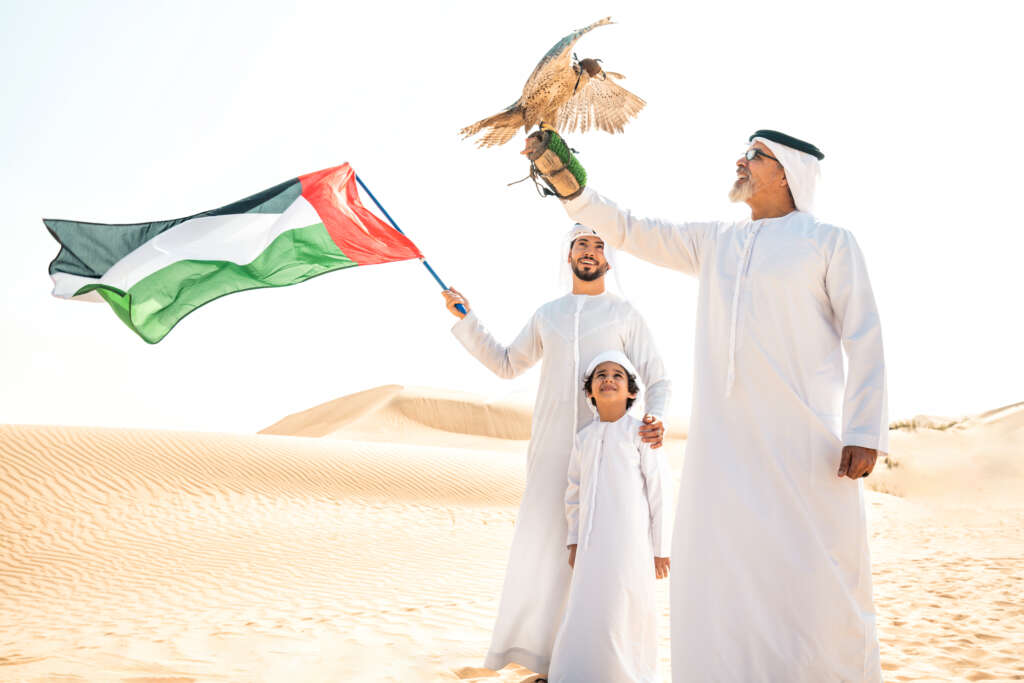
6. The Future of Middle Eastern Culture
So, where is Middle Eastern culture headed? If the past decade is any indicator, expect to see even more evolution with a strong respect for heritage.
The Role of Youth
Young Middle Easterners are leading the charge, blending cultural pride with global openness.
Government Initiatives
Many Middle Eastern nations are investing in cultural preservation while promoting modernization, ensuring that tradition isn’t lost in the rush toward the future.
A Global Cultural Hub
The Middle East is becoming a center for art, music, fashion, and tech, making its mark on the world stage like never before.
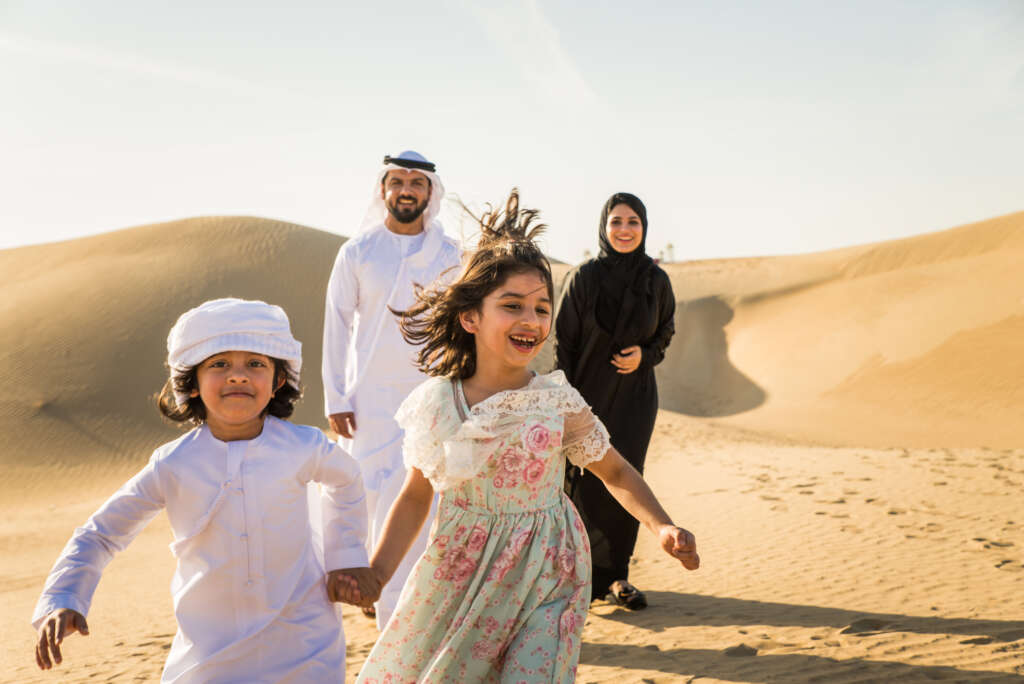
Conclusion
The Middle East is a master of adaptation—staying true to its roots while embracing the new. Whether you’re a traveler, expat, or simply fascinated by the region, there’s never been a better time to experience this incredible blend of tradition and modernity.
So, next time you sip Arabic coffee in a high-tech skyscraper or shop for designer fashion in a centuries-old bazaar, just remember: the Middle East is writing its own story—one that honors its past while boldly stepping into the future.
Last Reviewed: 24 April 2025
Stay Tuned!
The Middle East’s cultural transformation is just getting started, and we’re here to keep you updated on the latest trends, stories, and innovations. Don’t miss out and follow us on all social media platform @Marhabein for more insights, and be the first to know what’s next.
Stay curious, stay connected!


